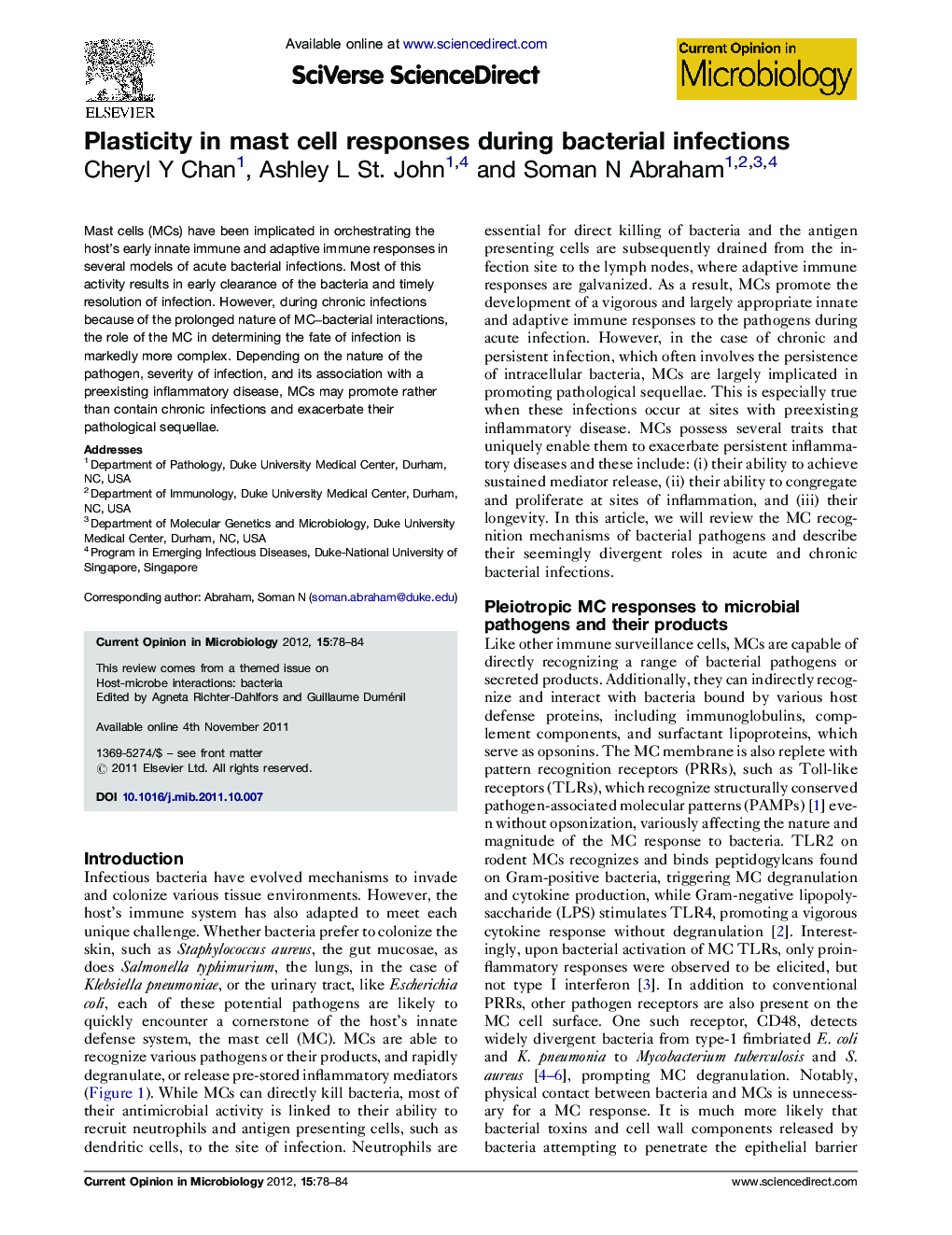| Article ID | Journal | Published Year | Pages | File Type |
|---|---|---|---|---|
| 3399194 | Current Opinion in Microbiology | 2012 | 7 Pages |
Mast cells (MCs) have been implicated in orchestrating the host's early innate immune and adaptive immune responses in several models of acute bacterial infections. Most of this activity results in early clearance of the bacteria and timely resolution of infection. However, during chronic infections because of the prolonged nature of MC–bacterial interactions, the role of the MC in determining the fate of infection is markedly more complex. Depending on the nature of the pathogen, severity of infection, and its association with a preexisting inflammatory disease, MCs may promote rather than contain chronic infections and exacerbate their pathological sequellae.
► Mast cells directly and indirectly bind bacterial pathogens or secreted products. ► Mast cells can mediate acute and adaptive immune responses upon bacterial infection. ► Immediate and local mast cell activation during acute infection is beneficial. ► Systemic and sustained mast cell activation can exacerbate pathological sequellae. ► Activate/suppressing mast cells can modulate host immunity for therapeutic benefit.
